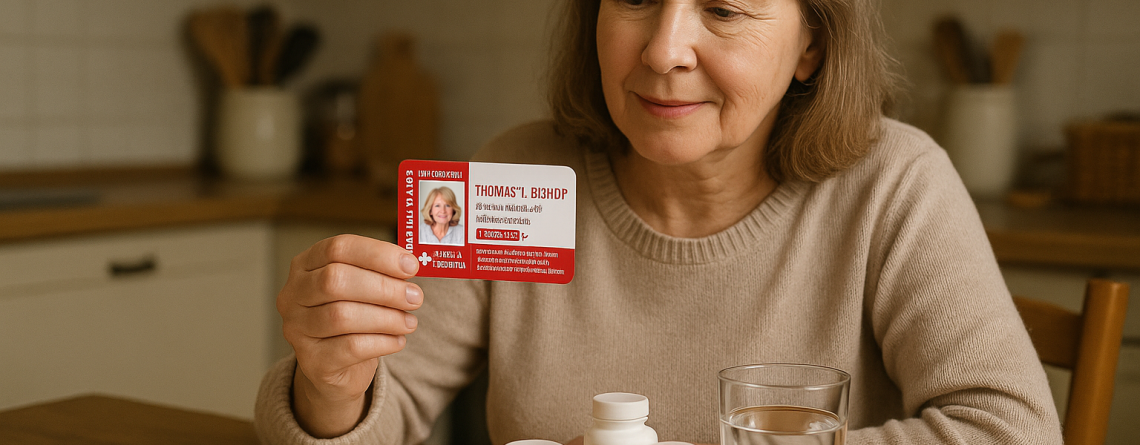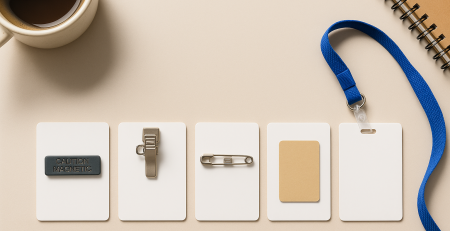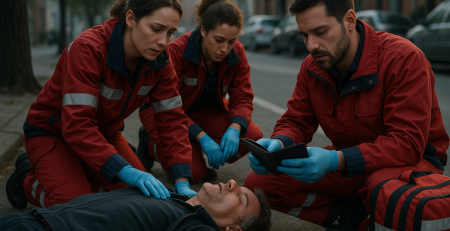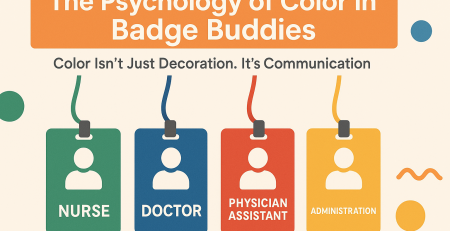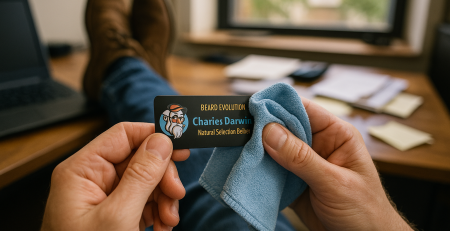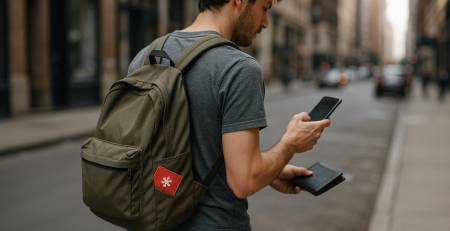Which Health Conditions Absolutely Require a Medical ID Card?
Not every emergency gives you time to explain. And not everyone who needs help can say, “Hey, I have a condition.”
That’s why the Medical ID Card exists. For the moments that steal your words, it delivers them for you — fast, clearly, and without confusion.
So who really needs one? Spoiler: every single person does.
Because when it comes to critical situations, being prepared isn’t optional — it’s lifesaving.
Let’s walk through the conditions, real-world moments, and overlooked risks that make this card a universal must-have.
What Makes This Card Different?
Before we dive in, here’s what the card includes and why it matters:
- Photo & Full Name — so responders know they have the right person
- Date of Birth & Address — to speed up hospital intake or ID confirmation
- Phone Number & Emergency Contact — for fast communication
- Medical Condition, Allergies, and Medications — so nothing critical is missed
This is more than a card. It’s your voice when you can’t speak. It’s a fast-pass to safer care.
And now, every card comes with an optional keychain tag to alert responders there’s a medical ID in your wallet — adding another layer of visibility in moments when it matters most.
1. People Who Lose Consciousness Easily
If you’ve ever passed out, had a seizure, or dropped your blood sugar too low, this card isn’t a nice-to-have. It’s essential.
In those moments, paramedics don’t get to ask questions — they have to act. Fast.
Your ID card tells them:
- What your condition is
- What medication you take
- How to treat you
- Who to call
Conditions that should always be noted:
- Diabetes
- Epilepsy
- History of stroke
- Cardiac conditions
- Low blood pressure / POTS
A 10-second glance at your card could shave minutes off your treatment — and that can be the difference between a full recovery and a tragic outcome.
2. Severe Allergies (Anaphylaxis Risk)
You know what’s scarier than a severe allergy? A responder not knowing about it.
Even if you carry an EpiPen, what happens if you’re found unconscious — and no one knows why?
Your card can clearly flag risks like:
- Penicillin
- Nuts
- Bee stings
- Latex
- Shellfish
Especially if you’ve ever had anaphylaxis, asthma triggered by allergens, or emergency room visits from allergic reactions — this isn’t something to leave to chance.
And if you’re a parent? Our Kids ID Cards help protect your child when you’re not around, including allergy info, school contacts, and emergency instructions.
3. Medication That Could Interact Badly
In a hospital, seconds matter — and so do meds. Some prescriptions change how your body reacts to treatment.
If you take:
- Blood thinners
- Heart medication
- Seizure or psychiatric drugs
- Immunosuppressants
…then every ER visit comes with added risk. This card shortens the learning curve for doctors and paramedics. Instead of digging or guessing, they act with confidence.
Because guessing wrong? That’s never an option.
4. Cognitive or Neurological Conditions
Sometimes, it’s not about what you can’t say — it’s about what others assume.
People with conditions like:
- Autism
- Alzheimer’s or dementia
- Non-verbal individuals
- Traumatic brain injuries
…may struggle to communicate clearly during stress. And stress is exactly what an emergency brings.
This card tells responders:
- How to approach
- What not to do
- Who to contact
It builds a bridge between your needs and their action — reducing panic and preventing misunderstandings.
5. Rare Diseases or Custom Treatment Protocols
Not every condition fits a checkbox. Some people have rare diseases, unique reactions, or standing medical orders that don’t fit a standard ER chart.
You might need to flag:
- Do-not-administer drugs
- Uncommon symptoms
- Custom care instructions
Unlike bracelets, our Medical ID Cards offer the space to explain clearly — without looking cluttered. It’s peace of mind, printed.
When time is tight, and your life is in someone else’s hands, clarity is everything.
Final Thought: This Isn’t Just for “Sick People” — It’s for Everyone
Let’s get one thing straight: this blog isn’t a checklist for five conditions. It’s a wake-up call.
Because truth is, you don’t need a diagnosis to need a Medical ID Card.
You just need a heartbeat.
Your condition might not be listed above — and that’s exactly why this matters. Whether you deal with anxiety, asthma, thyroid issues, chronic pain, migraines, long COVID, or a completely unique combo of conditions… this card is built for you.
It adapts to your needs. It speaks your truth. And when seconds matter most, it saves time — and potentially your life.
So no, it’s not about being one of “those people” with “those problems.”
It’s about having your back when no one else can.
Because emergencies don’t send invites. They just show up.
And when they do — wouldn’t it be powerful to know you’re ready?
Your Medical ID Card is your insurance against silence.
